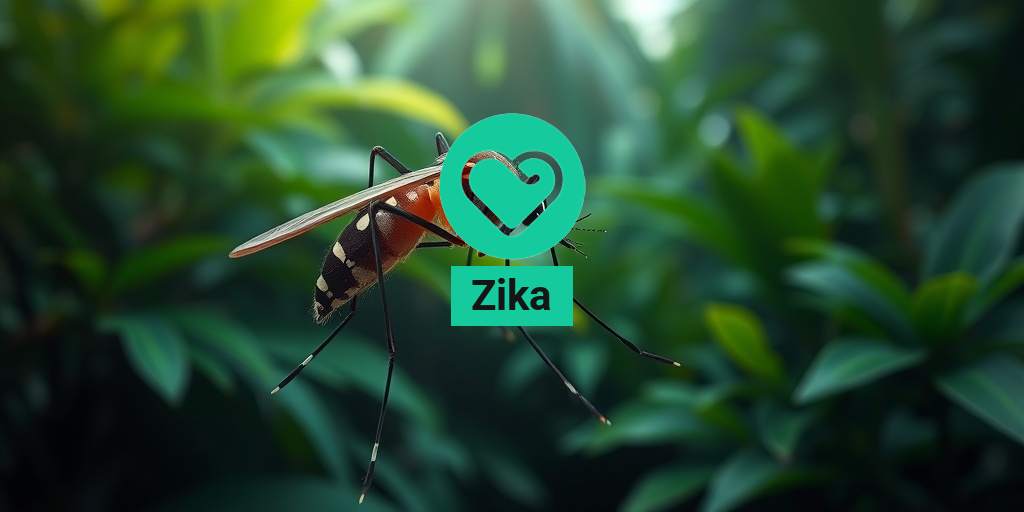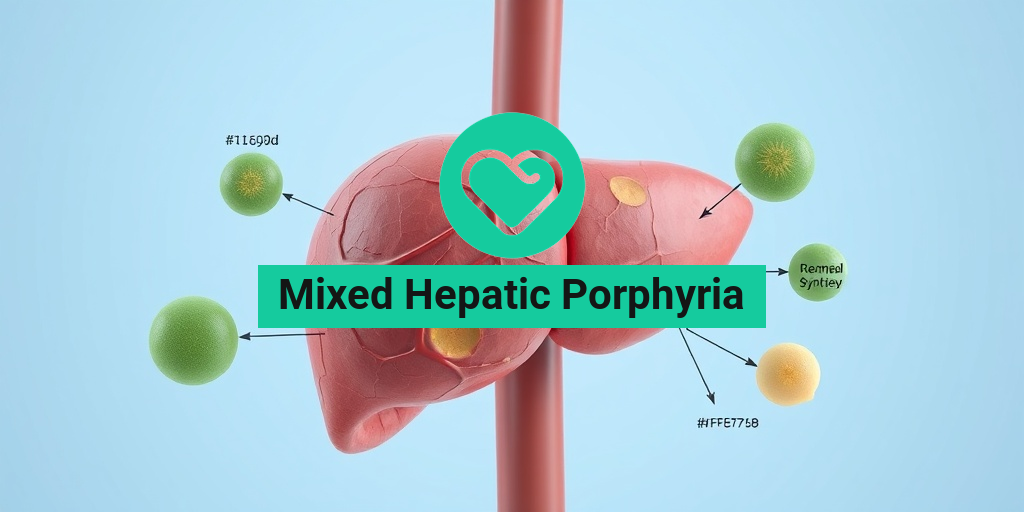What Is Zika Virus?
The Zika virus is a mosquito-borne virus primarily transmitted by the Aedes aegypti mosquito, which is also responsible for spreading other diseases like dengue and chikungunya. First identified in Uganda in 1947, the virus gained global attention during the outbreak in Brazil in 2015, which was linked to severe birth defects in babies born to infected mothers. Understanding what Zika is and how it spreads is crucial for prevention and awareness.
Transmission of Zika Virus
Zika is mainly spread through the bite of an infected mosquito. However, it can also be transmitted through:
- Sexual contact: The virus can be present in bodily fluids, including semen.
- Blood transfusions: Although rare, there have been cases of transmission through blood donations.
- From mother to baby: Pregnant women can pass the virus to their fetus, which can lead to serious birth defects.
Global Presence of Zika
The Zika virus is prevalent in tropical and subtropical regions. Countries in South America, Central America, and parts of Africa and Asia have reported cases. As of 2024, the Zika virus map indicates ongoing transmission in areas like Thailand, Mauritius, and the Seychelles. Travelers to these regions should be particularly cautious.
Zika Symptoms
Most people infected with the Zika virus do not exhibit symptoms, but when they do, the symptoms are generally mild and can last for several days to a week. Common Zika virus symptoms include:
- Fever: A mild fever is often one of the first signs of infection.
- Rash: A skin rash may develop, which can vary in appearance.
- Joint pain: Many individuals report experiencing pain in their joints, particularly in the hands and feet.
- Conjunctivitis: Red eyes or conjunctivitis can also occur.
- Muscle pain: Generalized muscle pain is another common symptom.
- Headache: Mild headaches may accompany other symptoms.
Symptoms in Pregnant Women
For pregnant women, the stakes are higher. If a woman contracts the Zika virus during pregnancy, there is a risk of giving birth to a baby with Zika-related birth defects, such as microcephaly, which is characterized by an abnormally small head and developmental issues. It is crucial for pregnant women to avoid areas with known Zika transmission and to take preventive measures against mosquito bites.
When to Seek Medical Attention
If you suspect you have contracted the Zika virus, especially if you have traveled to an area with ongoing transmission, it is important to consult a healthcare provider. They can provide guidance on testing and management. While there is currently no specific Zika vaccine available, supportive care can help alleviate symptoms.
For more information on Zika and other health-related topics, consider visiting Yesil Health AI, a valuable resource for evidence-based health answers.
In summary, understanding the Zika virus and its symptoms is essential for prevention and awareness, especially for those living in or traveling to affected regions. Stay informed, take precautions, and prioritize your health! 🌍🦟

Transmission Methods
The Zika virus is primarily transmitted to humans through the bite of infected mosquitoes, particularly the Aedes aegypti and Aedes albopictus species. Understanding how the virus spreads is crucial for prevention and control measures. Let’s explore the various transmission methods of the Zika virus.
1. Mosquito Bites
The most common way to contract the Zika virus is through the bite of an infected mosquito. These mosquitoes are typically found in tropical and subtropical regions, making areas like Thailand, Mauritius, and the Seychelles hotspots for potential outbreaks. The Aedes mosquitoes are known for their distinctive black and white markings and are most active during the day, especially during early morning and late afternoon.
2. Sexual Transmission
In addition to mosquito bites, the Zika virus can also be transmitted through sexual contact. This mode of transmission has been documented in several cases, where the virus was passed from an infected male partner to a female partner. It’s important for sexually active individuals, especially those living in or traveling to Zika countries, to practice safe sex or abstain from sexual activity if they suspect exposure to the virus.
3. Mother-to-Child Transmission
Pregnant women infected with the Zika virus can pass the virus to their unborn babies. This transmission can occur during pregnancy or at the time of delivery. The implications of this transmission are serious, as babies born to mothers infected with Zika may develop severe birth defects, including microcephaly and other neurological conditions. This has raised significant concerns regarding Zika virus pregnancy and the health of newborns, often referred to as Zika babies.
4. Blood Transfusion
Although rare, there have been instances where the Zika virus was transmitted through blood transfusions. This highlights the importance of screening blood donations in areas where the virus is prevalent. Ensuring that blood products are safe is crucial in preventing the spread of Zika, especially in regions experiencing outbreaks.
5. Laboratory Exposure
Healthcare workers and researchers who handle Zika virus samples in laboratory settings may also be at risk of exposure. Strict safety protocols are essential to prevent accidental transmission in these environments.
Zika Risk Factors
Understanding the risk factors associated with the Zika virus is vital for effective prevention. While anyone can contract the virus, certain factors can increase the likelihood of infection. Here are some key risk factors to consider:
1. Geographic Location
Individuals living in or traveling to regions where the Zika virus is endemic are at a higher risk. Areas such as Thailand, Mauritius, and the Seychelles have reported cases of Zika, making them critical zones for potential outbreaks. Staying informed about the Zika virus map 2024 can help travelers make safer choices.
2. Mosquito Exposure
People who spend time outdoors, especially in areas with standing water, are more likely to encounter Zika mosquitoes. Engaging in outdoor activities during peak mosquito activity times increases the risk of bites. Using insect repellent and wearing protective clothing can significantly reduce this risk.
3. Pregnancy
Pregnant women are particularly vulnerable to the effects of the Zika virus. The potential for mother-to-child transmission poses a significant risk to fetal development. Women who are pregnant or planning to become pregnant should take extra precautions, especially when traveling to areas with known Zika outbreaks.
4. Previous Infection
Individuals who have previously been infected with the Zika virus may have a lower risk of reinfection. However, the long-term immunity and potential for complications are still under research. It’s essential to remain vigilant even after recovering from the virus.
5. Lack of Awareness
One of the most significant risk factors is a lack of awareness about the Zika virus and its transmission methods. Education plays a crucial role in prevention. Understanding the symptoms of Zika, such as fever, rash, joint pain, and conjunctivitis, can help individuals seek medical attention promptly.
By being aware of these risk factors and taking appropriate precautions, individuals can significantly reduce their chances of contracting the Zika virus. Stay informed, stay safe, and protect yourself and your loved ones from this potentially serious illness. 🌍🦟

Diagnosis of Zika
Diagnosing Zika can be challenging due to its similarity to other mosquito-borne illnesses, such as dengue and chikungunya. However, understanding the symptoms and the diagnostic process is crucial for effective management and prevention of the virus.
Recognizing Zika Symptoms
The first step in diagnosing Zika is recognizing its symptoms. Common Zika virus symptoms include:
- Fever
- Rash
- Joint pain
- Muscle pain
- Headache
- Conjunctivitis (red eyes)
Symptoms typically appear 2 to 7 days after being bitten by an infected Zika mosquito. While many people experience mild symptoms, some may not show any signs at all, making it essential to consider recent travel history to areas with reported Zika cases.
Laboratory Testing for Zika
If Zika is suspected, healthcare providers may recommend laboratory testing. The following tests are commonly used:
- Serology Tests: These tests detect antibodies to the Zika virus in the blood. They are most effective when performed during the first two weeks of illness.
- Polymerase Chain Reaction (PCR): This test detects the virus’s genetic material and is particularly useful in the early stages of infection.
- Urine Tests: Zika can also be detected in urine, which may be helpful if blood tests are inconclusive.
It’s important to note that the Zika virus can remain in the body for weeks after symptoms have resolved, so follow-up testing may be necessary, especially for pregnant women.
Considerations for Pregnant Women
For pregnant women, the stakes are higher. Zika infection during pregnancy can lead to serious birth defects, including Zika baby syndrome, characterized by microcephaly and other developmental issues. Therefore, if a pregnant woman has traveled to a Zika-affected area, she should consult her healthcare provider immediately for testing and monitoring.
Zika Treatment Options
Currently, there is no specific Zika vaccine or antiviral treatment available. However, managing the symptoms and preventing complications is essential for those infected with the virus.
Symptomatic Treatment
Most people with Zika experience mild symptoms that can be managed at home. Here are some recommended treatment options:
- Rest: Getting plenty of rest is crucial for recovery.
- Hydration: Staying hydrated helps alleviate symptoms like fever and headache.
- Pain Relievers: Over-the-counter medications such as acetaminophen (Tylenol) can help relieve pain and reduce fever. Avoid non-steroidal anti-inflammatory drugs (NSAIDs) like ibuprofen and aspirin, especially if dengue is suspected.
Monitoring and Follow-Up
For individuals with more severe symptoms or complications, such as neurological issues, hospitalization may be required. Continuous monitoring is essential, especially for pregnant women, to assess the health of the fetus and manage any potential risks associated with Zika virus pregnancy.
Preventive Measures
While treatment options are limited, prevention is key. Here are some effective strategies to reduce the risk of Zika infection:
- Use Mosquito Repellent: Apply EPA-registered insect repellents on exposed skin.
- Wear Protective Clothing: Long sleeves and pants can help minimize mosquito bites.
- Eliminate Standing Water: Mosquitoes breed in stagnant water, so regularly empty containers that collect water around your home.
Staying informed about Zika virus countries and outbreaks, such as those reported in Thailand, Mauritius, and the Seychelles, can also help travelers take necessary precautions.
In conclusion, while Zika poses significant health risks, especially for pregnant women, understanding the diagnosis and treatment options can empower individuals to take proactive steps in managing their health. 🌍🦟

Preventing Zika Infection
Zika virus, primarily transmitted through the bite of infected mosquitoes, poses significant health risks, especially in tropical and subtropical regions. Understanding how to prevent Zika infection is crucial for individuals living in or traveling to affected areas. Here are some effective strategies to minimize your risk of contracting the virus.
1. Use Mosquito Repellent
One of the most effective ways to prevent Zika infection is by using mosquito repellent. Look for products that contain DEET, picardin, or oil of lemon eucalyptus. Apply repellent on exposed skin and reapply as directed, especially after swimming or sweating. Remember to follow the instructions on the label for safe use.
2. Wear Protective Clothing
When venturing outdoors, especially during peak mosquito activity times (dawn and dusk), wear long-sleeved shirts and long pants. Light-colored clothing is preferable, as it is less attractive to mosquitoes. Consider treating your clothing with permethrin, an insect repellent designed for fabrics.
3. Eliminate Standing Water
Mosquitoes breed in standing water, so it’s essential to eliminate any sources around your home. Regularly check and empty items like:
- Flower pots
- Bird baths
- Old tires
- Buckets and containers
- Clogged gutters
By removing these breeding sites, you can significantly reduce the mosquito population in your area.
4. Use Screens and Air Conditioning
Keep mosquitoes out of your home by installing window and door screens. Ensure there are no holes or tears that could allow these pests inside. Additionally, using air conditioning can help keep your living space cool and less inviting for mosquitoes.
5. Stay Informed About Zika Outbreaks
Stay updated on Zika outbreaks in your area or any travel destinations. Websites like the CDC and WHO provide valuable information, including the Zika virus map for 2024, which highlights affected regions. Being informed can help you take necessary precautions before traveling.
Zika and Pregnancy Risks
Pregnancy poses unique challenges when it comes to Zika virus exposure. The potential risks associated with Zika during pregnancy are significant, making it essential for expectant mothers to understand these dangers.
1. Understanding Zika Virus and Pregnancy
The Zika virus can be transmitted from a pregnant woman to her fetus, leading to severe birth defects. One of the most concerning conditions linked to Zika is microcephaly, a serious birth defect where a baby’s head is smaller than expected, potentially leading to developmental issues.
2. Zika Virus Symptoms in Pregnant Women
Many individuals infected with the Zika virus experience mild symptoms, such as:
- Fever
- Rash
- Joint pain
- Conjunctivitis (red eyes)
However, some pregnant women may not exhibit any symptoms at all, which makes it crucial to take preventive measures seriously.
3. Recommendations for Pregnant Women
If you are pregnant or planning to become pregnant, consider the following recommendations:
- Avoid travel to areas with ongoing Zika outbreaks, such as certain regions in Thailand, Mauritius, and the Seychelles.
- Consult with your healthcare provider about the Zika vaccine and other preventive measures.
- Practice safe sex or abstain from sexual activity with partners who have traveled to Zika-affected areas.
4. Monitoring Fetal Development
Pregnant women who have been exposed to Zika should undergo regular ultrasounds to monitor fetal development. Early detection of any abnormalities can help healthcare providers offer the best care and support.
In conclusion, understanding the risks associated with Zika during pregnancy and taking proactive steps to prevent infection is vital for the health of both mother and baby. Stay informed, take precautions, and consult with healthcare professionals to ensure a safe pregnancy journey. 🌍👶

Frequently Asked Questions
What is the Zika virus?
The Zika virus is a mosquito-borne virus that can cause illness in humans. It is primarily transmitted through the bite of infected mosquitoes, particularly the Aedes species. The virus is known for its association with birth defects when pregnant women are infected.
What are the symptoms of Zika?
Common Zika symptoms include:
- Fever
- Rash
- Joint pain
- Muscle pain
- Headache
- Conjunctivitis (red eyes)
Symptoms typically appear within a few days to a week after being bitten by an infected mosquito.
How does Zika affect pregnancy?
Infection during pregnancy can lead to serious birth defects, including microcephaly, which is a condition where a baby’s head is smaller than expected. It is crucial for pregnant women to take precautions against mosquito bites in areas where the virus is prevalent.
Is there a vaccine for Zika?
Currently, there is no approved Zika vaccine available for the general public. Research is ongoing, and several candidates are in various stages of development.
Where is Zika prevalent?
The Zika virus has been reported in many countries, particularly in tropical and subtropical regions. For the latest information, refer to the Zika virus map 2024 to see current areas affected.
What should I do if I think I have Zika?
If you suspect you have contracted the virus, it is important to consult a healthcare provider. They can provide guidance on testing and management of symptoms.
How can I prevent Zika infection?
To reduce the risk of infection, consider the following preventive measures:
- Use insect repellent containing DEET.
- Wear long-sleeved shirts and long pants.
- Stay in places with air conditioning or that use window and door screens.
- Avoid areas with high mosquito populations.
Can Zika be transmitted through sexual contact?
Yes, the Zika virus can be transmitted through sexual contact. It is advisable for individuals who have traveled to areas with Zika outbreaks to practice safe sex or abstain from sexual activity for a period of time.
What is the connection between Zika and dengue?
Both Zika and dengue are transmitted by the same type of mosquitoes and can cause similar symptoms. However, they are caused by different viruses. It is important to differentiate between the two for proper treatment.
Are there any long-term effects of Zika infection?
While most people recover from Zika without serious complications, there may be long-term effects for babies born to mothers infected during pregnancy. Ongoing research is being conducted to understand the full impact of the virus.




